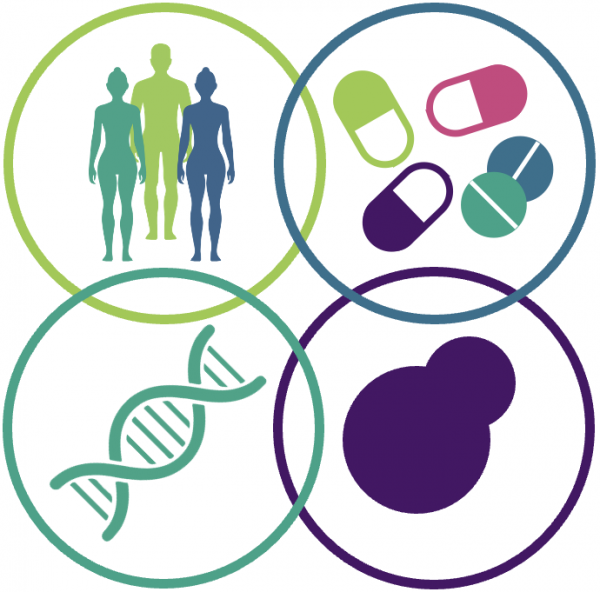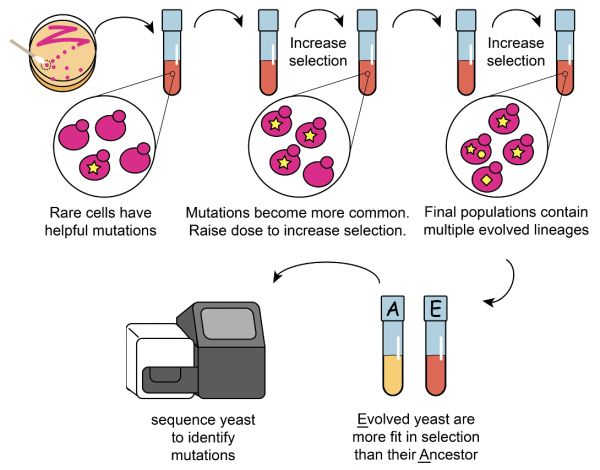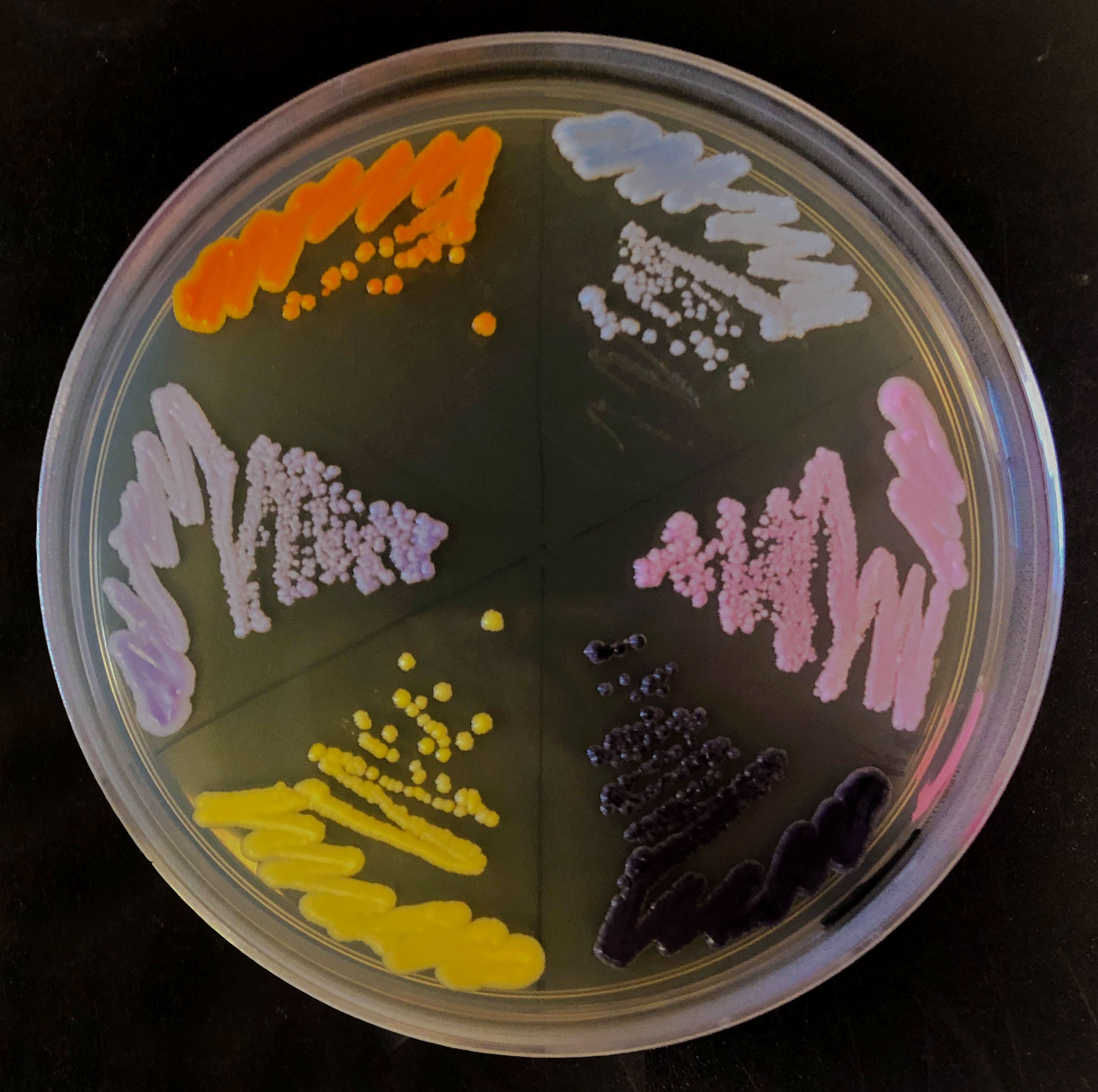Pharmacogenetics

A key promise of precision medicine is that genetic information can be used to optimize drug prescribing and dosing. However, while the increase in genetic sequencing has increased our awareness of variation in human genes, the functional effects of most variants are unknown. In order for genetic information to improve treatment, we must connect sequence variation to function.
One way to measure human pharmacogene variant function is through assays in baker’s yeast, Saccharomyces cerevisiae. Yeast has been used to conduct functional assays on human pharmacogenes, providing annotations for thousands of variants [1]. We use cell and molecular biology, genetics and genomics, and databank analysis to improve human pharmacogene variant interpretation and enable the implementation of precision medicine.
Experimental evolution
Experimental evolution is a technique in which organisms are grown under defined selective pressures. We culture yeast in increasing concentrations of a selective pressure and observe over time as growth improves due to selection for yeast harboring beneficial mutations. After sequencing the evolved yeast, we identify mutations and conduct follow-up experiments to draw connections between the affected genes and drug resistance.
One area of interest is understanding how yeast responds to caffeine. Caffeine inhibits the protein TOR, which is a master regulator of many cellular processes including growth, nutrient response, and aging. By investigating what proteins and cellular processes are altered in our yeast with increased caffeine tolerance, we aim to increase our knowledge of the regulation of TOR signaling and parallel pathways that can compensate for its inhibition.We previously identified changes in caffeine transport and TOR signaling [2], and are continuing to study how TOR signaling responds to caffeine.


We are also interested in how yeast respond to chalcones. Chalcones are a group of aromatic compounds, originally derived from plants, that have potential pharmaceutical applications. Various studies – including at Gonzaga – have shown that they have anticancer and antimicrobial properties, but less is known about how they bring about these effects. Our goal is to use experimental evolution in yeast to learn what mutations can provide resistance to chalcones, and from that determine which genes are involved in response to chalcones in cells. This project is in collaboration with many other labs at Gonzaga that study chalcones, including the Organic Chemistry lab classes that synthesize all of the chalcones we use!
We carry out our experimental evolution projects with yEvo Lab (yeast Evolution Lab). yEvo is an authentic research experience designed for students to observe the process of evolution in their classrooms using yeast as a model organism. We collaborate with the University of Washington and high schools in Spokane. If you teach or attend a high school in Spokane and are interested in joining one of these projects, please reach out so we can involve you in our future yEvo plans!